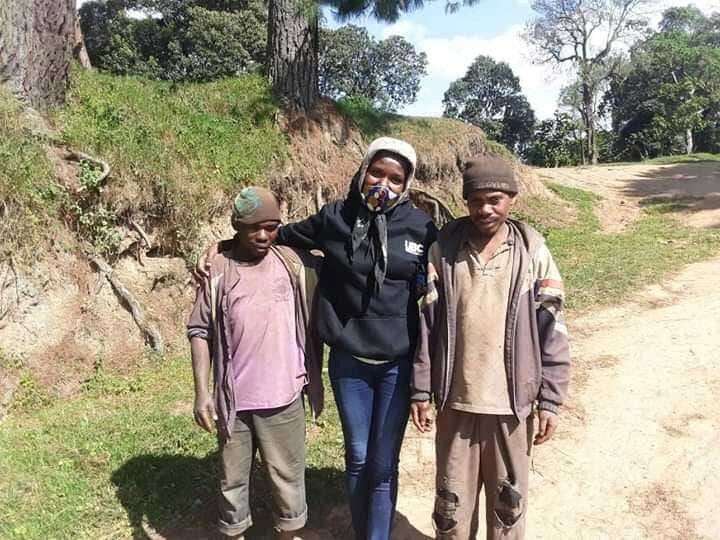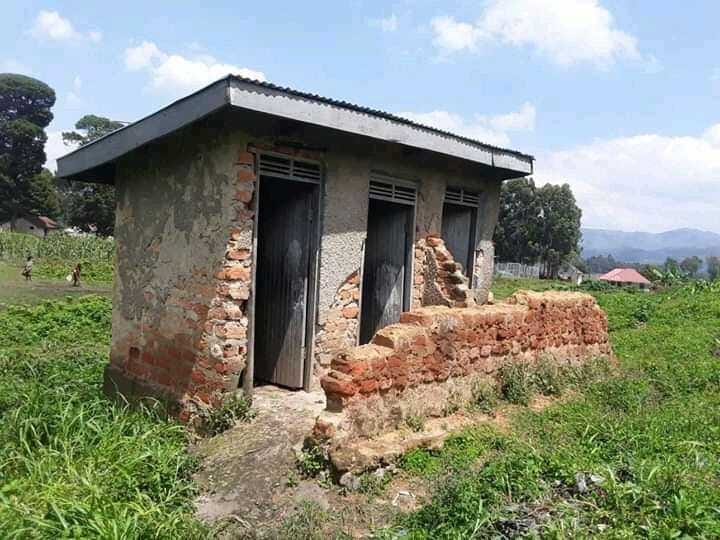
The Batwa, commonly known as the ‘pygmies’, are one of the minority and endangered tribes living in Kisoro, Kabale, and Kanungu districts Western Uganda
What is so unique about the Batwa is that they prefer staying in the forests in temporary shelters to semi- permanent and permanent shelters.
There is a renowned Ugandan fairytale about them. A Mzungu, ‘Whiteman’, in trying to relocate and integrate the Batwa into the normal Ugandan society’s life style, constructed iron sheet roofed houses for them, when it rained they were disgusted and scared of the raindrops sounds and immediately returned to the forest into their peaceful and preferred grass thatched shelters in the forest. However much few live as squatters on rich land owners in exchange for cheap labour, many associate with other Ugandans during the day; drinking in bars, attending market days but return to their home in forest reserve in the evening.
They originally stayed in the Echuya Forest Reserve in Kisoro and Kabale( now Rubanda) districts harmoniously with the mountain gorillas until the early 1990’s when the Ugandan government ‘relocated’ some of them. However, others are still living at the forest reserve’s edges.
The 2014 Uganda National Housing and Population census findings revealed that there are over 3500 Batwa in the country.
The community is one of the most endangered, discriminated and marginalized in the country thus needing rescue especially in water, sanitation, hygiene.
According to “Close But Too Far: The Health Tale” of the Batwa by Cliff Abenaitwe, the tribe lacks sanitation facilities. Very few have pit latrines in their ‘homes’.
In an entire village of over 150 households only 3 have a pit latrine, one belonging to the village chief .The rest ease themselves from the bushes, forests and nearby streams.
Annet Nyinabagiritima, a mother of seven and a widow living in the Michingo donor constructed Batwa homestead located behind Kisoro District Local Government headquarters says they are living in a sorrowful state as far as sanitation issues are concerned and need help.

Aggrey Sabimwana who is a representation of thousands of Batwa living at the edges of the Echuya Forest Reserve says that he defecates in the bush because he is unsure of his tomorrow.
“I defecate in bush. Where we stay they do not retain us. The next day you can be chased.”
Aisha Nyiransenga Phiona one of the Batwa communities’ native co-ordinator at the United Organization for the Development of the Batwa (UOBDU) says they are suffering and the government should come to their rescue.
That the pit latrine (the only one serving over 20 families in the settlement) UOBDU constructed for them is filled and dilapidated so, they have nowhere to ease themselves from.
They share it with their children too
Peninah Zanimpa, the United Organization for the Development of the Batwa (UOBDU) a Non-Governmental Organization taking care of the community’s needs in South Western, Uganda says, however much they face financial challenges they managed to construct some pit latrines across all the Batwa settlements in the region.
“We do work with so far 43 clusters of the Batwa within the 8 districts mainly in South Western Uganda depending on the availability of funds. We do construct pit latrines to the Batwa community as a community that is needy. Talk about 2019, we constructed 32 pit latrines for the Batwa community. As the organization, we have got restricted funds. We do agree with the donors what we are going to do, so we can’t go beyond what we agreed as we sign the donor partnership,” says Zanimpa.

Abel Bizimana, the Kisoro District Local Government chairperson and a public health specialist says he has tirelessly petitioned the Uganda government to come to the Batwa’s sanitation rescue in vain.
He further noted says that with the little they have, they will continue supporting them with water tanks, pit latrines and perhaps piped water and that as a council they gazzeted some land in Rugina on which if they got financial assistance would construct houses for some unsettled Batwa in the district.
